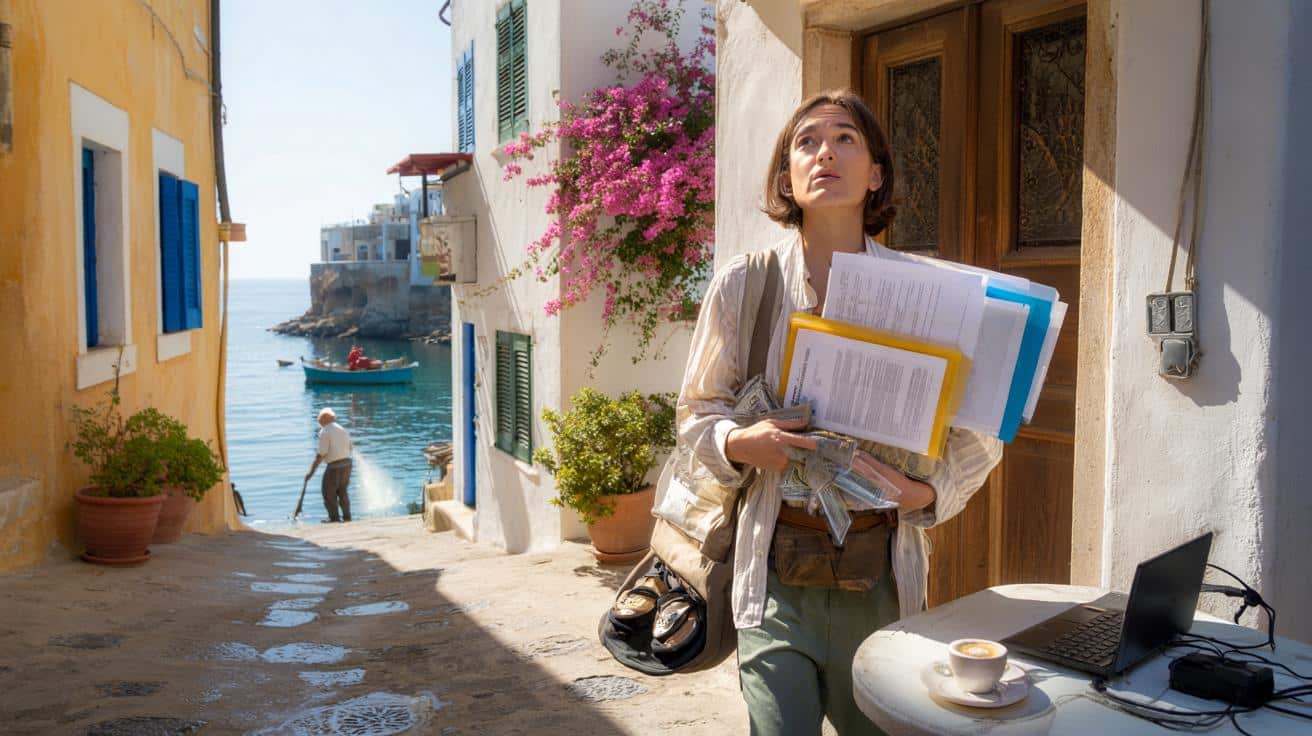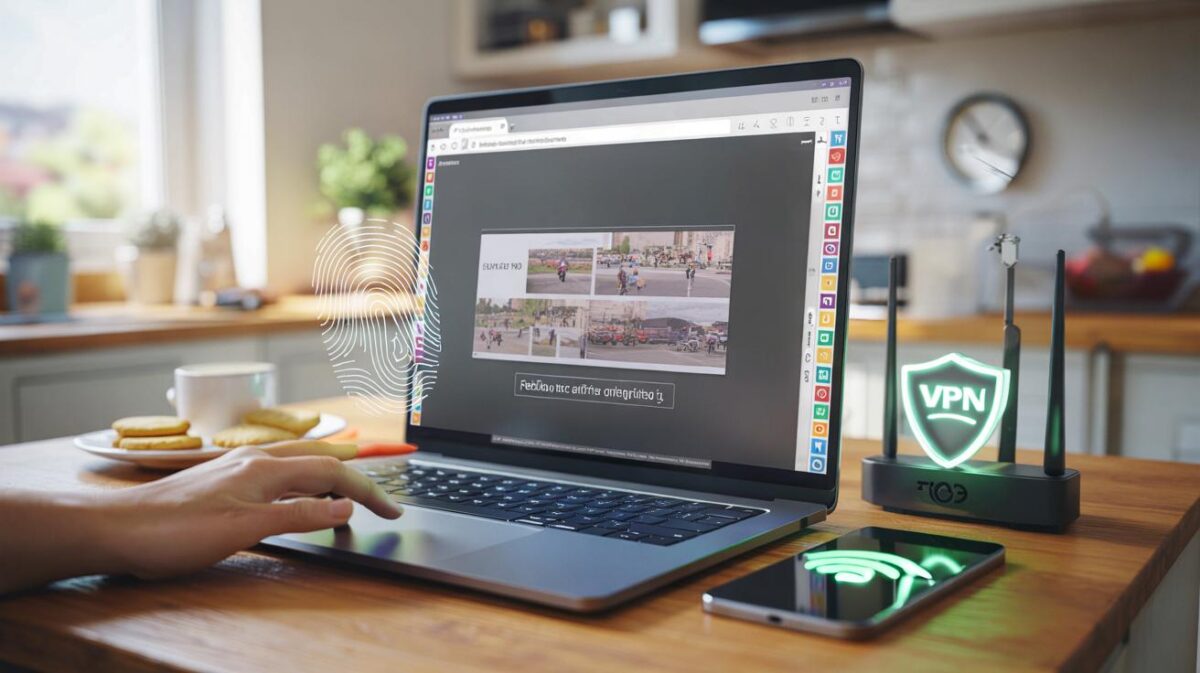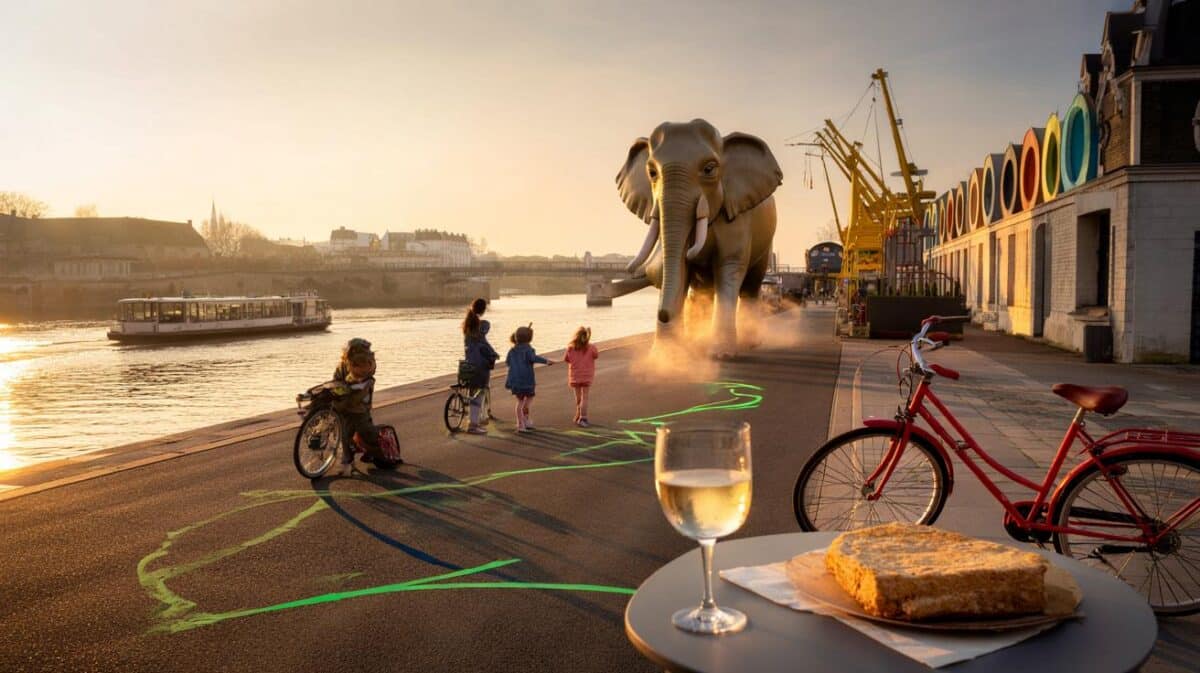I arrived sure I was trading rush-hour rain for lemon light and gentle afternoons. What blindsided me wasn’t the sea or the language. It was everything that sat between me and a simple life: forms, hours, seasons, silence.
The shutters rattled in the dawn breeze, and the alley smelled of coffee and tide. A fisherman hosed down his boat as the bakery loosed its first trays, the street turning from blue to gold in seconds. I padded to the café in sandals still new enough to squeak, rehearsing a hello I’d practised into my pillow. The owner slid a saucer across without words, and the first sip felt like I’d unknotted a year of London. A scooter coughed awake. An elderly neighbour fed an alley cat. Somewhere above, a radio sang an old love song. Then the lights went out.
The postcard has a price tag you don’t see
I thought slowing down would be a mood, not a system. The first shock was time itself: shops that close from one till four, work that vanishes in winter, buses when they feel like it. The rhythm here is real, and it’s not designed for your plans. I swapped calendar alerts for hand-written notes on the fridge, and still missed things by a day. The sun tells everyone what’s possible. You obey, or you pay.
Take the bank account. Six visits, three stamps, a photocopy of a photocopy, and a smile from a clerk that said, “Try again Tuesday.” My internet took 47 days. The electricity contract wanted proof of address, the landlord wanted electricity in my name, and round we went. In August, a metal chair branded the back of my knees while I queued at the municipal office to register. A teenager breezed in, cut the line, and made me look at the sea outside to stop myself saying something stupid.
There’s a reason this nearly broke me. The modern life I brought in a laptop bag runs on speed and clarity. The life I landed in runs on relationships and heat. Friction mounts quietly: small misunderstandings, apps that won’t accept your postcode, neighbours who wave but don’t know your name yet. Multiply that by rent due on the first and a freelance client in a rainy country expecting you online at nine sharp, and your “slow” life turns into new stress with a better view. *The shade looks close, until it isn’t.*
What actually made it bearable
I built a two-speed day. Mornings before nine were for the hard stuff: queues, phone calls, anything that needed anyone official. After lunch, I surrendered. Reading in the coolest room, swims that lasted ten quiet minutes, emails drafted then parked till evening. I carried a small envelope of cash for surprise fees and a folder with ridiculous dividers. I practised five phrases in the local language and used them every day: hello, please, thank you, I’m learning, can you help. People softened. Doors inched open.
Here’s what I wish I’d known: don’t rush the friendships or the paperwork. Showing up at the same café matters more than getting everything right. Expect to repeat your story. Expect to get tired of hearing it. Comparing everything to the UK makes you smug or miserable, neither helps. Build a winter plan in summer. Choose rent that sits under a third of what you earn. And give yourself one small ritual you won’t break—mine was a walk at dusk. Let’s be honest: nobody actually does that every day.
The mistakes that stung were simple: assuming English would always appear, assuming the sea would fix my anxiety, assuming slowness meant ease. A retired neighbour gave me the best line I heard all year.
“Piano, piano, you’ll arrive. But you won’t arrive where you thought.”
- Carry copies: passport, tenancy, tax number. Keep them in a cheap plastic sleeve.
- Ask one local to be your “fixer” for a month. Pay in pastries or petrol.
- Work with the heat. Early tasks, late dinners. Treat noon as a pause, not a void.
- Learn the bus driver’s name. It changes the timetable more than an app.
- Budget for the **off-season** like it’s a second rent. Quiet can be expensive.
A quieter life, still noisy
I did slow down. Not in the hammock-and-olives way a postcard promises. In the way you learn to breathe while standing in a queue, or laugh when a storm steals the Wi‑Fi, or sit with a neighbour who talks in stories you half understand. Things that nearly broke you become the shape you grow around.
We’ve all had that moment when the thing you wanted reveals its hidden labour. You can resent it, or you can accept that slowness is a skill, not a souvenir. The Mediterranean didn’t heal me. It made me pay attention. It taught me to lose a morning and gain an evening, to value shade like money, to make tea when the power cuts, to keep three pens because one will leak and one will vanish. The sea is loud. The life beside it asks for courage in small daily doses. It gives something back, if you listen.
| Point clé | Détail | Intérêt pour le lecteur |
|---|---|---|
| Slowness is a system | Midday closures, seasonal work, relationship-led processes | Sets expectations so you don’t misread delays as personal failures |
| Build a two-speed day | Hard tasks early, pause at noon, light tasks late | Protects energy and reduces fights with the climate and bureaucracy |
| Prepare for the gap | Paper copies, local fixer, winter plan, modest rent | Turns friction into routine and avoids crisis when the season shifts |
FAQ :
- How much should I save before moving?Three to six months of living costs, plus a buffer for deposits and surprise fees. Think first month’s rent twice, then add the price of being wrong.
- Will I manage without speaking the language?You’ll survive, not thrive. Learn ten daily phrases fast. Add one new verb a week. People meet you halfway when you start walking.
- What about work across time zones?Choose clients who accept your daylight. Set response windows in your email signature. Keep one charging cable in your bag and one at home, because **the paperwork** isn’t the only thing that goes missing.
- How do I find a decent flat?Walk the neighbourhood, ask in cafés, join local groups. Avoid August. Winter viewings show leaks and drafts that summer hides.
- Is the Mediterranean life really “easier”?Different, not easier. The sea soothes, the **heat** tests, and the admin humbles. Ease arrives when your daily habits match the place you live.









This is the first essay I’ve read that admits the admin is the real surf. “Slowness is a system”—yes. Thank you for the practical bits (two-speed day, copies, winter plan). I’m moving next spring and this defintely made my expectations saner. Also love the honesty that the sea doesn’t fix anxiety, attention does.